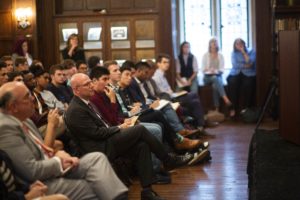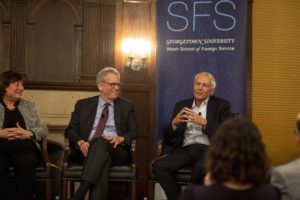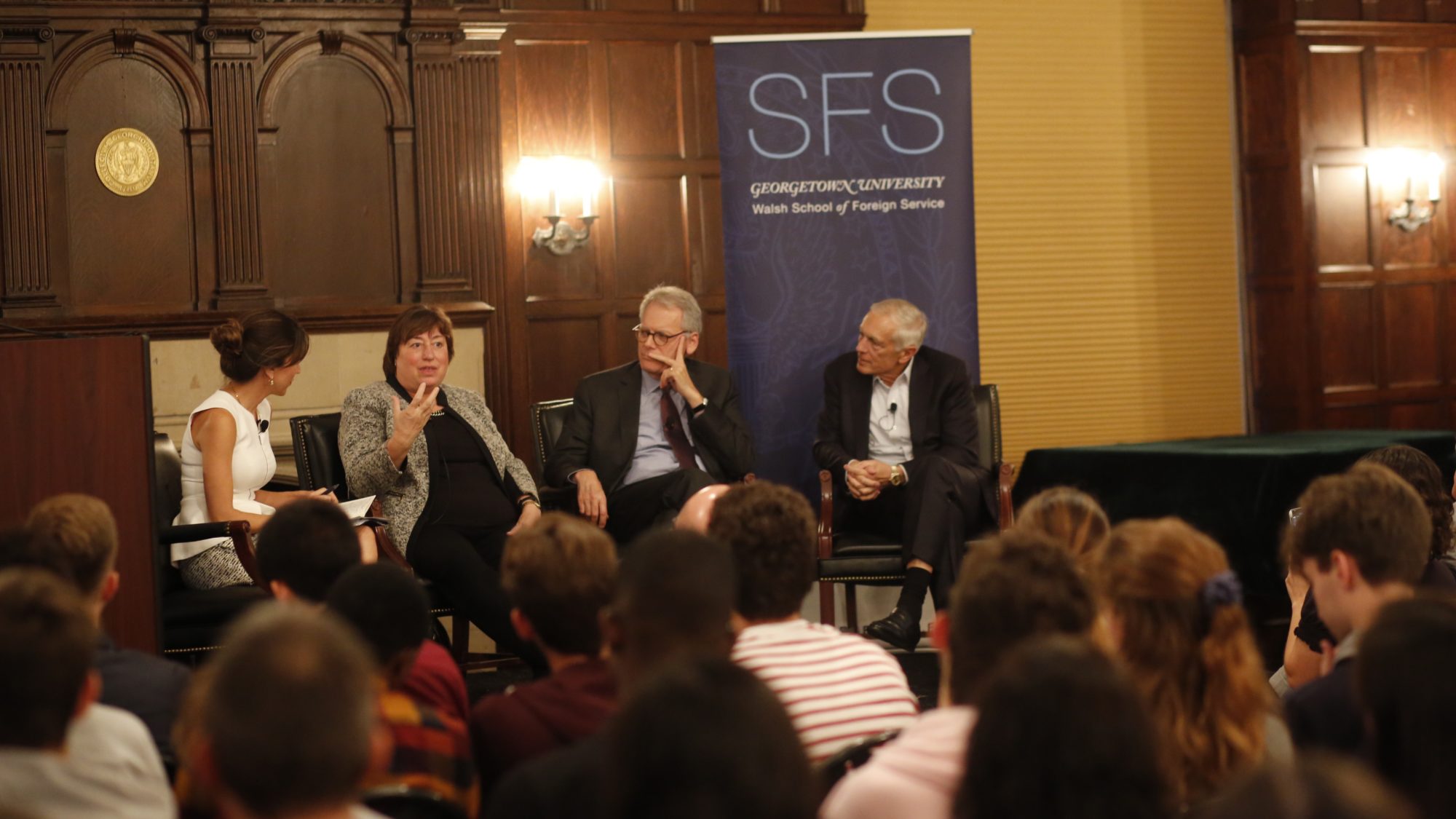 Occurring on the anniversary of a significant turning point for U.S. foreign policy, the conversation ranged from professional and personal reflections on the tragedy of 9/11 to current opportunities in foreign policy. Clark suggested that the frustration that many Americans have with the country’s current trajectory may actually present an opportunity in itself. “Now we have a national strategy that a lot of Americans disagree with; I’m one of them,” Clark said. “Why don’t we take this opportunity to create a new and better national strategy that reflects the true interests of the American people in the 21st century?”
Occurring on the anniversary of a significant turning point for U.S. foreign policy, the conversation ranged from professional and personal reflections on the tragedy of 9/11 to current opportunities in foreign policy. Clark suggested that the frustration that many Americans have with the country’s current trajectory may actually present an opportunity in itself. “Now we have a national strategy that a lot of Americans disagree with; I’m one of them,” Clark said. “Why don’t we take this opportunity to create a new and better national strategy that reflects the true interests of the American people in the 21st century?”
Novelli expressed her belief in what she sees as a valuable chance to work across international lines in the fields of science and technology. “I think we have an incredible opportunity in science and technology to have collaboration with other scientists in other countries,” Novelli said.
DeLaurentis discussed his experience in Cuba and the ways in which it shaped his personal perceptions of foreign policy. He noted that the 2015 detente would not have been impossible without President Obama’s belief that a changed relationship with Cuba was in the U.S. national interest. Stationed in Havana at the time, DeLaurentis witnessed firsthand the Cuban people’s reactions to this historic announcement.
“That day in Havana was pretty extraordinary. Church bells were ringing, American and Cuban flags were being draped over balconies,” DeLaurentis recalled. “And we were all wondering … where the hell did they get the American flags?”
 The panel also discussed the complexity of diplomacy in the modern age. On the subject of diplomatic voids, Novelli noted the importance of continued U.S. engagement in the world. “I think one of the mistakes people have, is that if we withdraw, everything will remain the same,” Novelli said. “And really, the reason why we were engaged is not because we were just altruistic—it was because we wanted to make sure our interests were being represented. When there’s a void and you’re not there, your interests aren’t being represented anymore.”
The panel also discussed the complexity of diplomacy in the modern age. On the subject of diplomatic voids, Novelli noted the importance of continued U.S. engagement in the world. “I think one of the mistakes people have, is that if we withdraw, everything will remain the same,” Novelli said. “And really, the reason why we were engaged is not because we were just altruistic—it was because we wanted to make sure our interests were being represented. When there’s a void and you’re not there, your interests aren’t being represented anymore.”
The 2018-2019 fellows specialize in a diverse range of important global issues, bringing their valuable experience as practitioners to the Hilltop. All three featured fellows will continue their residencies through the spring semester, participating in events for the Georgetown community, presenting to classes, engaging with Georgetown alumni and holding office hours for students.
